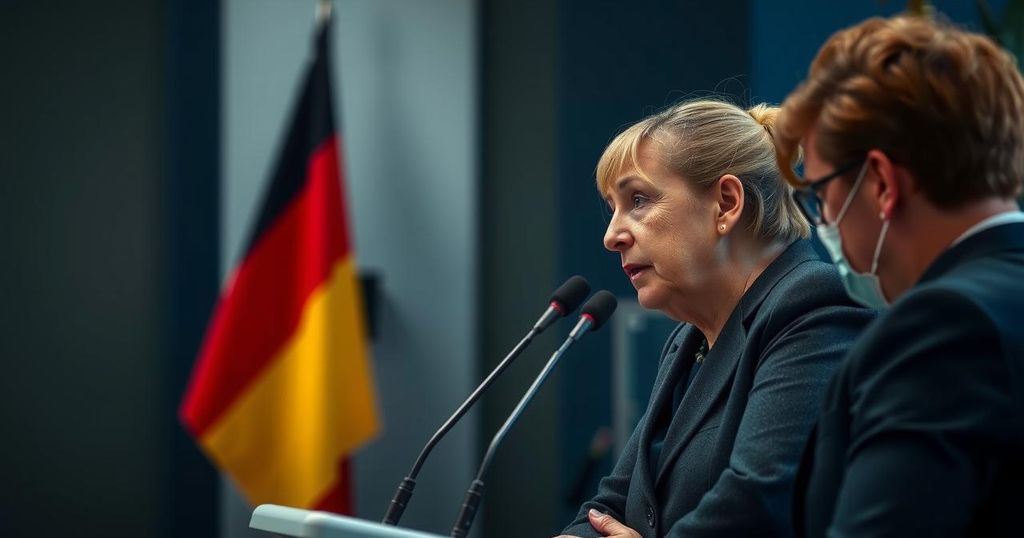Germany Prepares for Snap Elections on February 23 Following Coalition Collapse

Germany is slated to conduct snap elections on February 23 after Chancellor Scholz’s coalition disintegrated. A compromise election date emerged from discussions between the SPD and the conservative CDU/CSU parties, following expected losses in a confidence vote for Scholz. Political instability in Germany is driven by economic pressures, global geopolitical shifts, and rising fragmentation among parties, posing challenges for future governance and unity in the EU.
Germany is preparing for snap elections on February 23, following the breakdown of Chancellor Olaf Scholz’s three-party coalition. The consensus on this date was achieved between the two largest parties in the country, reflecting a compromise between the conservative opposition, which advocated for an earlier election, and Scholz, who preferred a later date in mid-March. The February 23 election will follow a confidence vote on December 16, which Scholz is anticipated to lose. Subsequently, President Frank-Walter Steinmeier will have a window of 21 days to dissolve the Bundestag, necessitating elections within 60 days due to current political instability. Steinmeier has expressed support for this timeline and urged all major parties to collaborate to ensure the nation’s security during this transitional period. The political turmoil in Germany stems from rising tensions within the coalition, particularly regarding economic strategies. The sudden departure of the Finance Minister, Christian Lindner of the Free Democrats, exacerbated the situation leading to the coalition’s collapse. This development coincided with significant global events, including the victory of Donald Trump in the US elections, which poses additional challenges for the future stability of Germany and the European Union. Additionally, the political landscape in Germany is becoming increasingly fragmented, with the conservative alliance of the CDU/CSU positioned as the frontrunner in current polls, followed by the AfD party gaining traction due to concerns over immigration. Despite these challenges, the Social Democrats have voiced their continued support for Chancellor Scholz, emphasizing his experience in leadership roles. The forthcoming elections will be conducted during the harsh winter months, presenting potential logistical difficulties for campaigning, contrasting with the typical summer election climate.
The impending snap elections in Germany arise in the wake of a collapsed coalition government formed by Chancellor Olaf Scholz in late 2021, which included the Social Democratic Party (SPD), the Green Party, and the Free Democratic Party (FDP). Contracting influences from rising inflation, geopolitical tensions from Russia’s war in Ukraine, and increased competition from China have created pressures on Germany’s economy, leading to significant political realignment. The political backdrop is further complicated by the growing popularity of the far-right Alternative for Germany (AfD) party, as well as the necessity for the major established parties to navigate this increasingly divided electoral landscape as they seek to stabilize government amidst external and internal challenges.
In conclusion, Germany’s snap elections set for February 23 represent a critical juncture in the country’s political framework following the collapse of Chancellor Scholz’s coalition. With substantial economic pressures and a shifting political landscape, the outcomes of these elections will be influential not only for Germany but also for the broader European context. The emphasis placed on collaboration among major parties during this transitional phase highlights the urgency to restore governmental stability and address the multifaceted challenges the nation is currently facing.
Original Source: www.aljazeera.com








